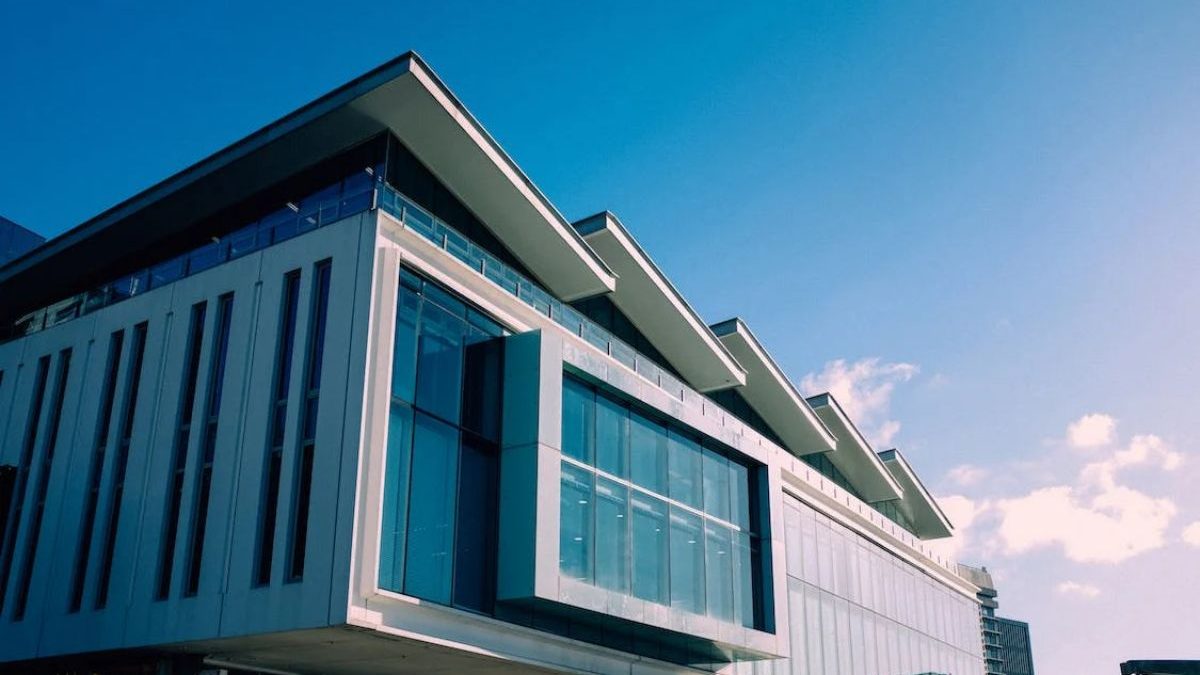As a business owner, having the right roofing system in place can mean the difference between success and failure. Not only is it important to have a secure structure that can withstand weather damage and other elements, but also one that will be energy-efficient and cost-effective. Colony Roofers serving Atlanta, GA constructs commercial roofs differently than residential ones to meet the specific needs of businesses. Today we’re diving into what sets commercial roofing apart from residential ones. Let’s explore everything you need to know about commercial roofing.
Table of Contents
What Is A Commercial Roof?
A commercial roof is a specialized type of roofing system designed to protect large commercial buildings. These roofs require specific techniques, materials, and expertise due to their size and complexity. They are typically made of high-performance materials such as metal, TPO, or EPDM rubber, which offer excellent durability and hold up against harsh weather conditions.
Different Types of Commercial Roofs
Commercial buildings require sturdy and durable roofs that can withstand harsh weather conditions and constant wear and tear and provide optimum protection to the people and the assets inside. The following are some common types of commercial roofs that are widely used in the construction industry:
- Built-up Roofing (BUR) – BUR is made of several layers of hot tar and gravel that are heated and layered on top of the roof. This type of roofing provides excellent insulation and is highly resistant to punctures and tears.
- Modified Bitumen Roofing – This type of roofing is made from asphalt and a rubber-like material that is applied in layers. It is highly resistant to UV radiation and can withstand heavy foot traffic. Modified bitumen roofing is often used on commercial buildings with flat or low-slope roofs.
- Single-ply Membrane Roofing – Single-ply membrane roofing is a lightweight option that is easy to install and highly resistant to leaks. It is made of a single layer of plastic or rubber material.
- Metal Roofing – Metal roofing is a durable option that can withstand extreme weather conditions, including strong winds, heavy rain, and snow. It is often used in high-rise buildings and warehouses. Metal roofing is also long-lasting, which makes it a cost-effective option in the long run.
- Green Roofs – Green roofs are becoming increasingly popular in commercial buildings. They are covered with vegetation, which helps to improve insulation, reduce rainwater run-off, and improve air quality. Green roofs are highly effective in reducing the urban heat island effect and providing an aesthetically pleasing environment.
What Set Commercial Roofing Apart?
Commercial roofing differs from residential roofing in a number of ways, both in terms of the types of roofs installed and the materials used. Here are some of the key factors that set commercial roofing apart:
Size
Commercial roofs are generally much larger than residential roofs, covering a vast area to provide adequate protection to the entire building. These roofs require specialized installation techniques, as well as more robust materials to ensure the roof can withstand adverse weather conditions and heavy foot traffic.
Material
Commercial roofs often use materials such as thermoplastic, EPDM, metal, and modified bitumen, which are specifically designed for commercial roofing applications. These materials provide exceptional durability and fire resistance and can withstand high winds, making them ideal for commercial roofing systems.
Design
The design and structure of commercial roofs are also significantly different from that of residential roofs. Commercial roofs require specialized design and engineering to ensure their ability to support HVAC systems, solar panels, and other extensive equipment installations that are commonly found in commercial buildings. The intricate design also reinforces safety, ensuring the structure can withstand heavy loads and provide maximum protection to the occupants.
Thoroughly researching before deciding on any type of roofing system is always a good idea as the longevity of your investment will depend upon it. As the environment in which businesses operate changes from day to day, so too do the types of roofs they need to protect themselves. That makes relying on a knowledgeable commercial roofer even more important.
They can help you make decisions based on your current climate and environmental needs as well as how those affect your budget. With a combined knowledge of decades in this field, they can help tailor the right system for you no matter how large or small your project may be. You can rest assured that your business will be receiving the highest quality of service possible. Now go forth, educate yourself, and start looking into just how commercial roofing can help benefit your own unique business venture.

